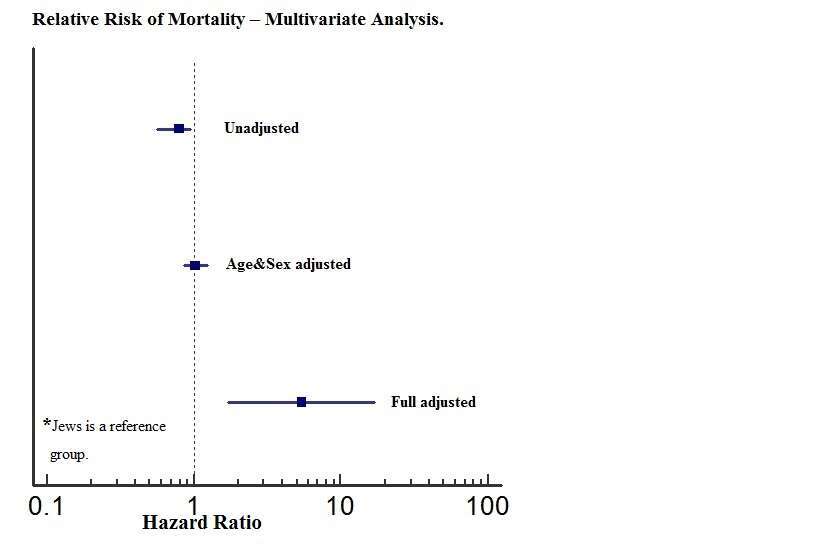Background: Acute myocardial infarction (AMI) is a leading cause of morbidity and mortality in developed countries.
Several studies have examined the relationship between ethnicity and post-AMI mortality some demonstrating a trend towards higher mortality among ethnic minorities as compared to native population. However, these results are not universally accepted as contradicting findings have also been reported.
Aim: To evaluate disparities in long-term post-AMI mortality between Jews and Muslims in Israel.
Methods: A retrospective analysis of 2,671 post-AMI patients (10.9% Muslims). Data were collected from computerized systems of Soroka University Medical Center. The primary outcome was 10-years post-discharge all-cause mortality. Mortality was analyzed after adjustment for the investigated risk factors using Jews as a reference group.
Results: Compared with Jews, Muslims were younger, generally male, with higher rates of diabetes, smoking and chronic obstructive pulmonary disease (COPD). They also had less history of hypertension, dyslipidemia, obesity and extensive ischemic heart disease. In terms of hospital care, both groups had the same frequency of access to angiography, percutaneous coronary intervention (PCI) and coronary artery bypass surgery (CABG).
During the follow-up period, 1,280 (47.9%) patients died: 120 Muslims (41.2%) and 1160 Jews (47.9%) (Hazard Ratio [HR]=1.27, p=0.014). After adjustment for age and sex there was no significant difference in mortality between the groups (AdjHR=1.02, p=0.806). After adjustment for age, sex and other investigated risk factors, greater risk for long-term mortality was found for Muslims as compared to Jews (AdjHR=5.41, p=0.004).
Conclusions: In the current study we found significant disparities in long-term prognosis following AMI between Muslims and Jews. This warrants further research and interventional programs dealing with causes of the disparities.


